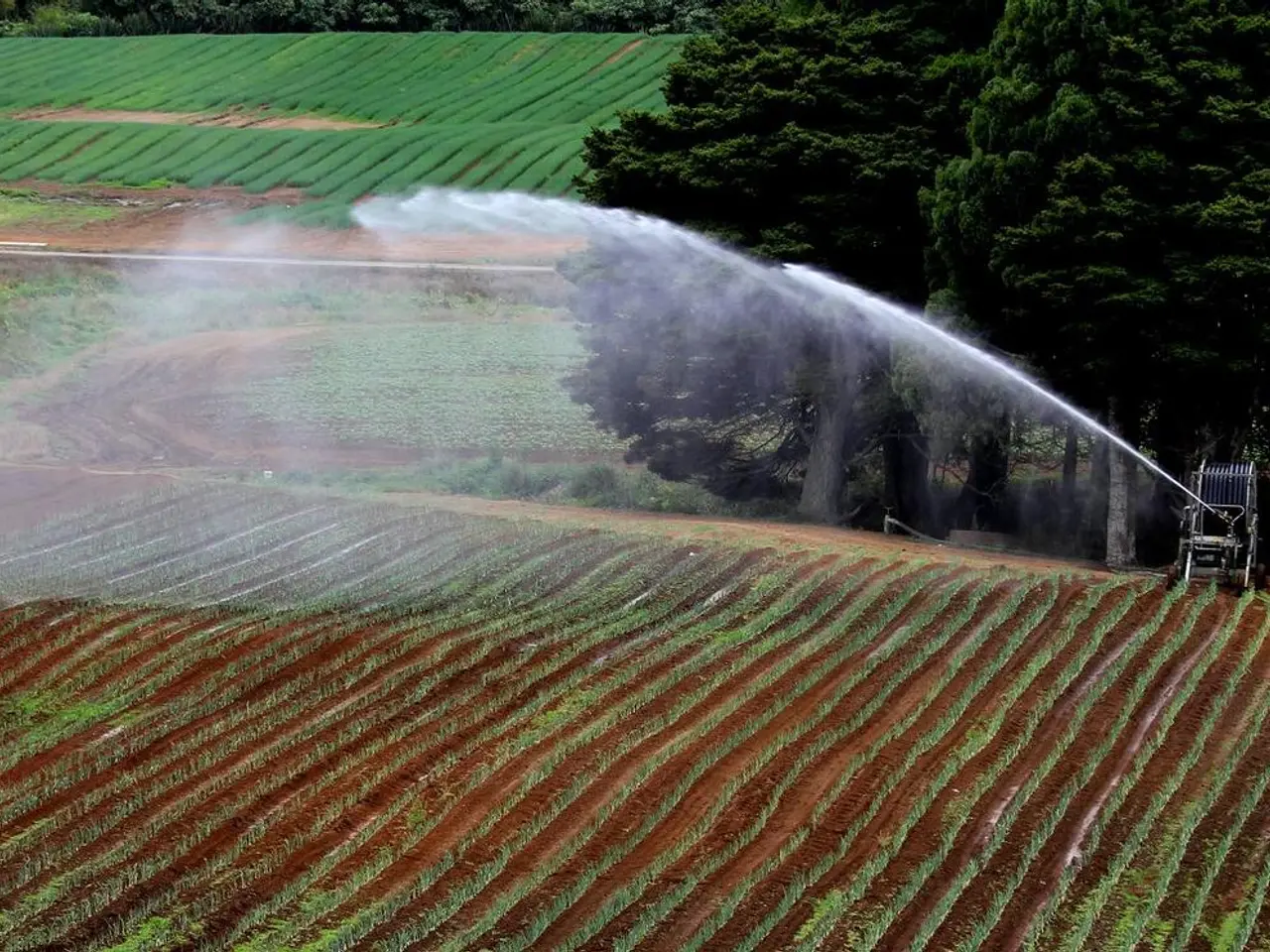Nigeria Unveils Initial Industrial Biochar Plant to Combat Carbon Dioxide Release
Africa Takes the Lead in Carbon Removal Efforts with Releaf Earth's Biochar Production
Africa is poised to become a global leader in carbon removal efforts, thanks to the innovative work of climate-tech startup, Releaf Earth. The company's biochar carbon removal facility in Cross River State, Nigeria, is leading the charge in Africa, aiming to tackle climate change, restore soil health, and build resilience for millions of African farmers.
The industrial-scale biochar production facility, Nigeria's first of its kind, was launched by Releaf Earth and aims to remove 40 kilotonnes of CO2e by 2030. With plans to scale up to 100 kilotonnes, this facility represents a scalable carbon dioxide removal (CDR) solution in Africa.
The facility converts palm kernel shells, a byproduct of Releaf Earth's patented nutcracking technology, into biochar—a stable, carbon-rich material. This biochar not only locks carbon in soil for thousands of years but also improves crop yields and reduces fertilizer costs. In a 2024 pilot in Cross River, the facility showed a 23% boost in crop yields.
Ikenna Nzewi, CEO of Releaf Earth, believes that Africa has natural advantages to lead carbon removal globally. Tito Jankowski, CEO of AirMiners, predicts that Africa could become the most affordable and largest producer of biochar.
By integrating industrial biochar production with local agricultural improvement and generating verifiable carbon removal credits, Releaf Earth is helping to build the carbon removal capacity needed for Africa to meet its carbon targets under international frameworks and nationally determined contributions (NDCs) towards 2030.
In addition to its carbon removal benefits, Releaf Earth's approach offers co-benefits such as enhancing smallholder farmers' yields and promoting soil health. Smallholder farmers could see their incomes rise by over 50% thanks to better harvests and the sale of carbon credits.
Moreover, the process also generates renewable energy, enabling off-grid deployment. Releaf Earth is developing tools to help other food processors evaluate biochar feasibility using existing agricultural infrastructure. Verified carbon credits will be issued via the Riverside Registry for Releaf's biochar production.
Relief Earth is one of several promising African startups advancing carbon removal technologies. The company is recognised as one of the promising startups by the CEEZER Carbon Coalition accelerator, which supports innovative carbon removal projects across Africa and other continents.
Carbon removal must scale 14,000-fold in the next 25 years to meet global climate targets. Releaf's patented Kraken machine has processed over 10,000 metric tonnes of palm nuts, generating biochar-ready waste. With its commitment to carbon removal, soil health, and sustainable agriculture, Releaf Earth's biochar production can contribute significantly to Africa's carbon removal targets by 2030.
[1] Releaf Earth. (2021). Press Release: Releaf Earth Launches Nigeria's First Industrial-Scale Biochar Carbon Removal Facility
[2] Releaf Earth. (2021). Factsheet: Releaf Earth's Biochar Carbon Removal
[3] CEEZER Carbon Coalition. (2021). Accelerator Programme
[4] Breakthrough Energy Ventures. (2021). Portfolio
[5] Y Combinator. (2021). Winter 2021 Batch
The scientific research and technology employed by Releaf Earth in their biochar production facility, a first in Nigeria, have positioned African environmental science as a potential global leader in combating climate change. This scalable carbon dioxide removal (CDR) solution, aiming to remove 40 kilotonnes of CO2e by 2030, shows great promise in Africa's capacity to meet its carbon targets under international frameworks.




